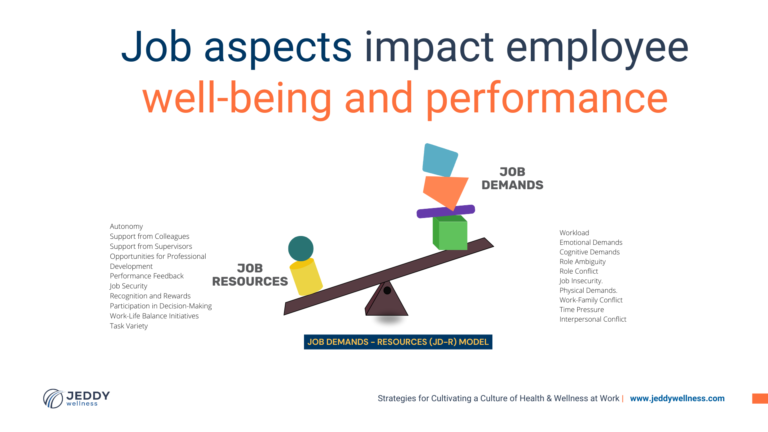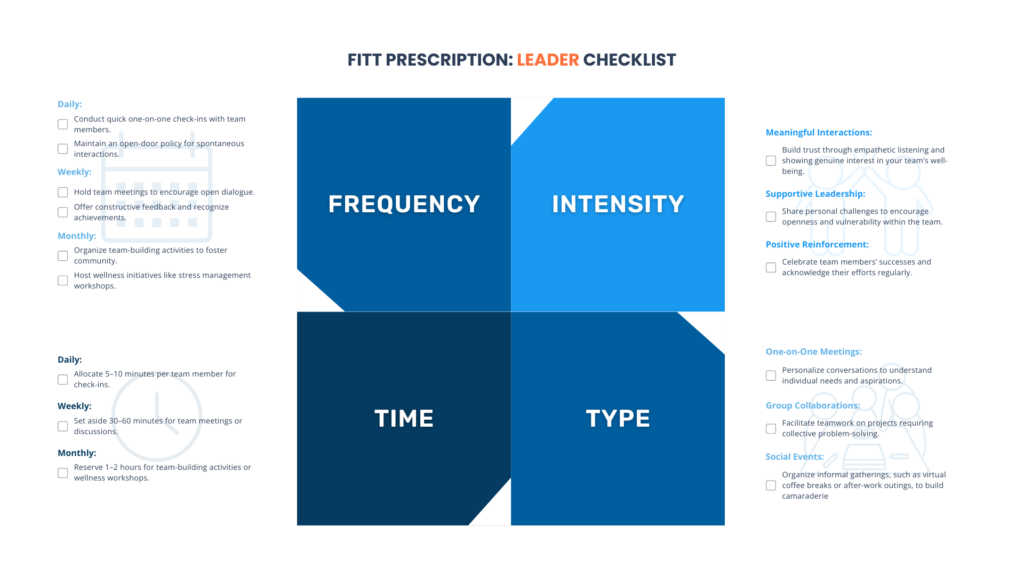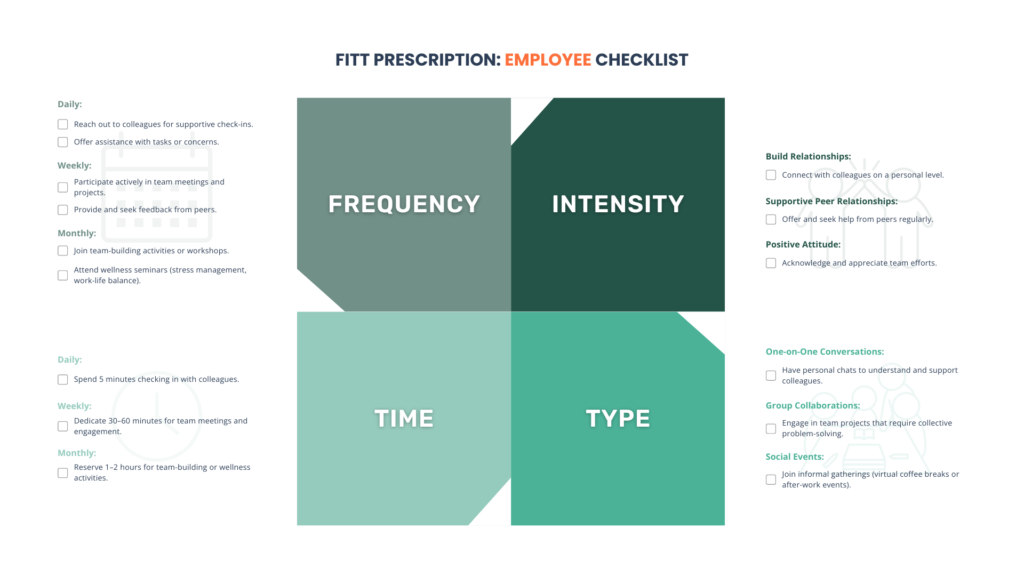WE in Wellness: A Collective Approach to Managing Stress
As we adapt to new ways of working, human connection and social support have never been more critical. Stress is an inevitable part of our work lives, but we do not have to face it alone. Strong social support networks help employees cope with demands and build resilience. Dr. Edward Hallowell, a renowned psychiatrist, highlights the profound impact of connection in his 1999 book Connect, He defines connection as “feeling a part of something larger than yourself, feeling close to another person or group, feeling welcomed, and understood”. Even a short, meaningful conversation can create a powerful connection if both parties are fully present and engaged. This type of focused interaction often elicits a reciprocal energy, fostering deeper bonds. Dr. Jane E. Dutton defines connection as a dynamic interaction between two individuals, characterized by mutual awareness and social exchange. High-Quality Connections (HQCs) contribute to well-being and engagement in interpersonal relationships.
Social Support as a Resource for Leaders and Employees
Job demands—such as work overload, emotional stress, and interpersonal tensions—can lead to burnout. However, job resources like supportive supervisors, encouraging coworkers, and team cohesion can significantly mitigate these effects (read the white paper – Strategies for Cultivating a Culture of Health and Wellness in the Workplace to learn more about Job-Demands and Resources). Social support is like a safety net, cushioning the blow when work feels overwhelming. Additionally, strong social connections have been shown to enhance mood, reduce stress, and even lower blood pressure, contributing to better overall health and longevity.

Social Support as a Resource for Leaders and Employees
There are two major categories of social support:
Perceived Social Support: The belief that you have people in your life who will be there when needed. This belief can reduce stress and provide peace of mind. For example, supportive leadership, team cohesion, work-life flexibility, colleague availability
Received Social Support: The actual assistance you receive when facing challenges, like a colleague offering advice or a manager providing resources. This type of support helps you cope with immediate challenges and lowers stress levels. For example, manager offering resources, peer collaboration, emotional support, or skill development.
In both cases, Perceived Social Support helps reduce anticipatory stress because employees believe they have a safety net, while Received Social Support directly assists in coping with immediate challenges, helping to lower real-time stress levels.
Wellness Shot: Having a strong support system is essential for our mental health and well-being. Watch or read about emotional, information, tangible, esteem and social network support.
FITT - Your Connection Prescription
If you are feeling isolated at work, FITT is your connection prescription! FITT can be used as a structured approach to building meaningful connections that can help manage stress effectively. This structured approach helps build meaningful connections to manage stress effectively. When applied thoughtfully, the FITT framework enables you to cultivate stronger relationships and support networks, which are essential in managing workplace stress. Whether you are a leader or a team member, this structured approach ensures that you regularly invest in meaningful, supportive interactions that not only help reduce stress but also foster a more connected and resilient workplace.
To harness the benefits of social support, try the FITT framework—Frequency, Intensity, Time, and Type. The FITT framework is an effective method for structuring wellness practices—including social support—into daily work life. It helps guide how we approach building relationships and managing stress.
- Frequency (F): How often do you reach out to colleagues or engage in social interactions to build and maintain relationships at work?
- Intensity (I): How meaningful or supportive are these interactions? Are you having in-depth conversations or simply exchanging pleasantries?
- Time (T): How much time do you dedicate to social support activities each day or week? Are these interactions brief or more extended?
- Type (T): What types of social support activities are you involved in? For example, are you participating in team-building exercises, one-on-one check-ins, group meetings, or informal social gatherings?
FITT Prescription for Leaders

FITT Prescription for Employees
Use this checklist to build strong relationships, making your work experience more fulfilling and less stressful.

Tips for Success
- Set Reminders: Schedule interactions.
- Be Present: Fully engage during conversations.
- Seek Feedback: Ask how to improve team dynamics.
World Mental Health Day, observed on October 10, 2024, focuses on “Mental Health at Work”. This year, the WHO is highlighting the critical connection between mental health and workplace environments. Safe, supportive workplaces can protect mental health, while unhealthy conditions—like stigma, discrimination, and poor working environments—can have serious mental health consequences, lowering both well-being and productivity.
With 60% of the global population in work, there is an urgent need for collective action by governments, employers, and organizations to create mental health-friendly workplaces. By investing in evidence-based approaches and supporting meaningful employee involvement, we can ensure that everyone thrives both in work and life.
Using the FITT framework, you can foster the supportive networks essential for managing stress, enhancing resilience, and improving overall mental health in the workplace. As we celebrate World Mental Health Day, let us take meaningful action to make our work environments healthier and more inclusive. Together, we can build a future where mental health at work is a priority.
Join our Linkedin community and learn how to use social support as powerful resource for your health and wellness.
Written By: Sumana Jeddy
______________________________
Stay Connected with Jeddy Wellness
Discover evidence-based research and innovative strategies to build and activate healthier workplaces.


